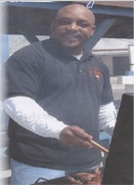WEBINAR: How smart managers are employee agents
Yep, it's time for me to pitch the next installment in the Fistful of Talent free webinar series, this one titled Get My Agent On The Phone- How Smart Managers Position Themselves as Agents Via Performance Goals, which is set for next Tuesday, May 21st from 1:00PM - 2:00PM EDT, and is sponsored by longtime friends of FOT and of mine, Halogen Software.
You can register for the free webinar here.
But why should you?
Because chances are at your organization either performance management, goal setting and tracking, or the capability of your front-line managers to really manage employee performance and inspire and encourage development need some help.
Because your company is probably like 98% of companies out there that are not getting enough - enough improvement, enough accountability, enough understanding of who the best performers really are - out of your performance management process.
Because despite the hype and buzz about 'scrapping performance reviews' you know that will never happen anytime soon where you work, and that you as a talent pro have to find ways to make the system work for you, and not try and invent something entirely new.
And last, because you secretly know if your organization doesn't continue to improve and innovate and stay one step ahead, there are 4 dudes who just dropped out of Stanford that have already figured out a way to do what your firm does, only cheaper, faster, and using only an iPhone app.
So what will you learn from Get My Agent On The Phone- How Smart Managers Position Themselves as Agents Via Performance Goals?
Simple.
Making sure the goals you set represent the Five Most Important Things (5MIT) for the employee in question. What are the most important things your employee has to focus on this year? If you can only talk to them about five things, what would those things be and why? Smart managers skip discussing the busy work and get to what's going to change the game - for the company and the employee. We'll give you the 411 on how to do that.
Offering up ways each of the Five Most Important Things might be measured in the months that follow. You want measurements - we get it. The key in offering up how you’re going to measure the 5MIT in question is not to limit yourself. The more you box yourself in, the less innovation you get. We'll show you how to set the expectation your direct reports are going to be measured without actually taking performance off the table. PS - They'll love you for this if you deliver it in the right way.
Having Thoughts on what “Good” and “Great” performance looks like in each area. That’s right – we’re going through a goal setting process not because HR told us we had to, but because it can set us up to be a great performance coach for the rest of the year. Nothing sets you up as a coach more than owning the difference between “good” and “great”. We'll tell you how to reserve the “great” tag for employees who really innovate, drive change or add true value in the job they’re in.
Including a section that details “What’s In It for Me?” for each area of focus. Being an agent is about talking about how chasing great performance in the area in question could be great for the employee’s career. We'll show you how to frame this as the agent/coach. It's the most important thing you can do.
Putting it all in an easy to follow, informal format. If you go beyond one page, you’re making goal setting too complex. List everything we’ve described to this point in one page, and make the headers conversational in nature, and you win. We've got some format to share with you.
Look you and your managers want to be viewed as career agents for your employees rather than a run of the mill corporate bureaucrat. The robots are coming for those jobs. Trust me on that.
Join FOT for "Get My Agent on the Phone" on Tuesday, May 21st from 1:00PM - 2:00PM EDT and we'll show how the secret sauce to goal setting and follow-up conversations can dramatically change the positioning of what you do in performance management.
As always, the free FOT webinar comes guaranteed - 60% of the time it works every time.

 Steve
Steve



